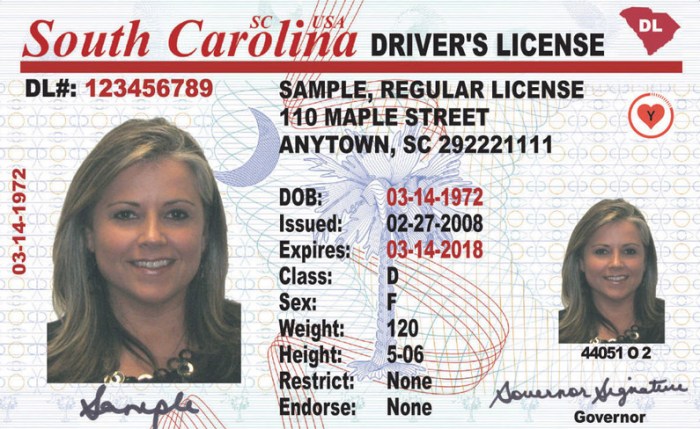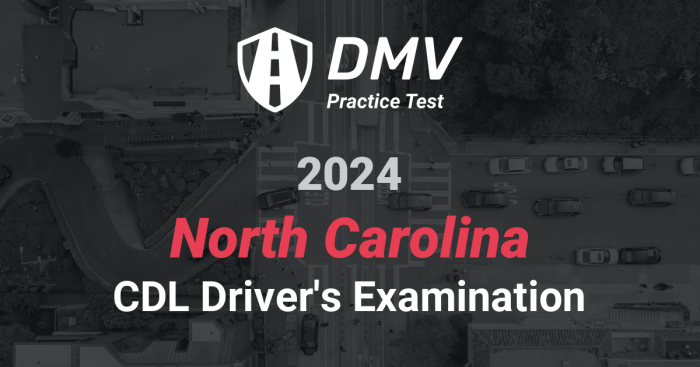Hazmat practice test south carolina – Prepare for the South Carolina hazmat practice test with confidence! This comprehensive guide provides an overview of hazmat regulations, practice test content, and effective preparation strategies. Enhance your hazmat knowledge and ensure a successful outcome on your actual exam.
Understanding Hazmat Regulations in South Carolina: Hazmat Practice Test South Carolina

Hazmat regulations in South Carolina aim to protect public health and the environment from the potential risks associated with hazardous materials. These regulations establish standards for the transportation, handling, and storage of hazardous materials, ensuring their safe and responsible management.
Agencies Responsible for Enforcing Hazmat Regulations
- South Carolina Department of Health and Environmental Control (DHEC):Regulates the storage and disposal of hazardous waste.
- South Carolina Department of Public Safety (DPS):Enforces regulations for the transportation of hazardous materials.
- South Carolina Department of Transportation (SCDOT):Issues permits for the transportation of hazardous materials on state highways.
Key Requirements for Transporting, Handling, and Storing Hazardous Materials
Hazmat regulations in South Carolina impose specific requirements for each aspect of hazardous materials management:
Transportation
- Proper labeling and placarding of vehicles carrying hazardous materials.
- Use of trained and certified drivers.
- Compliance with specific routes and schedules.
Handling
- Safe storage in approved containers.
- Adequate training for personnel handling hazardous materials.
- Emergency response plans in place.
Storage
- Secure and well-ventilated storage areas.
- Compliance with fire codes and safety standards.
- Regular inspections and maintenance of storage facilities.
Preparing for the Hazmat Practice Test

Thorough preparation is crucial for success on the South Carolina hazmat practice test. Understanding the types of practice tests available, their benefits, and effective preparation strategies can significantly enhance your chances of passing the actual exam.
Types of Hazmat Practice Tests, Hazmat practice test south carolina
In South Carolina, various hazmat practice tests are available, including:
- Online practice tests:Provided by commercial websites or educational institutions, these tests offer convenience and immediate feedback.
- Paper-based practice tests:Available from the South Carolina Department of Transportation (SCDOT), these tests simulate the actual exam format.
- Study guides:Often accompanied by practice questions, study guides provide comprehensive coverage of hazmat regulations and can serve as valuable practice material.
Benefits of Taking a Practice Test
Practice tests offer numerous advantages:
- Identify knowledge gaps:Practice tests reveal areas where you need further study and reinforcement.
- Familiarize with exam format:By taking practice tests, you become accustomed to the question types, time constraints, and overall structure of the actual exam.
- Build confidence:Successfully completing practice tests can boost your confidence and reduce anxiety on the actual exam day.
Tips for Effective Preparation
To maximize the benefits of practice tests, follow these tips:
- Start early:Allow ample time for preparation and practice.
- Review study materials:Before taking a practice test, thoroughly review hazmat regulations and study materials.
- Take timed tests:Simulate the actual exam conditions by taking practice tests under timed conditions.
- Analyze your results:After completing a practice test, carefully review your answers and identify areas for improvement.
- Repeat and refine:Take multiple practice tests and use the results to refine your study strategies and focus on areas where you need additional support.
Content of the Hazmat Practice Test

The South Carolina Hazmat Practice Test is designed to help individuals prepare for the official hazmat endorsement exam. The test covers a wide range of topics related to hazardous materials, including identification, classification, packing, labeling, and emergency response procedures.
The practice test is typically comprised of multiple-choice questions and may also include true/false and short-answer questions. The test is timed, and individuals are typically given a limited amount of time to complete the test.
Key Topics Covered
The key topics covered in the Hazmat Practice Test include:
- Identifying hazardous materials:This section of the test covers the different types of hazardous materials and their properties. Individuals will need to be able to identify hazardous materials based on their physical and chemical properties, as well as their hazard class and division.
- Classifying hazardous materials:This section of the test covers the different hazard classes and divisions of hazardous materials. Individuals will need to be able to classify hazardous materials based on their properties and the risks they pose.
- Packing and labeling hazardous materials:This section of the test covers the proper procedures for packing and labeling hazardous materials. Individuals will need to be able to identify the correct packaging and labeling requirements for different types of hazardous materials.
- Emergency response procedures:This section of the test covers the proper procedures for responding to hazardous materials incidents. Individuals will need to be able to identify the different types of hazardous materials incidents and the appropriate response procedures.
Scoring and Interpretation of the Practice Test

The Hazmat practice test is scored based on the number of correct answers. Each question carries equal weight, and the total score is expressed as a percentage.Understanding your score is crucial for identifying areas where you excel and areas that require improvement.
A high score indicates a strong grasp of the concepts covered in the practice test, while a lower score suggests the need for further study and review.
Guidelines for Interpreting Your Score
-
-*70% or higher
Indicates a solid understanding of the material. Focus on maintaining your knowledge and refining your skills.
-*60-69%
Demonstrates a good understanding of the material. Identify areas for improvement by reviewing the questions you answered incorrectly.
-*50-59%
Indicates a need for additional study. Review the entire practice test thoroughly, paying particular attention to the concepts you struggled with.
-*Below 50%
Suggests significant gaps in your knowledge. Consider seeking additional training or resources to enhance your understanding of the subject matter.
Importance of Reviewing Your Practice Test Results
Thoroughly reviewing your practice test results is essential for maximizing your learning experience. By analyzing your incorrect answers, you can pinpoint specific areas where you need to improve. This targeted approach to studying will help you strengthen your understanding of the material and increase your chances of success on the actual exam.
Using the Practice Test to Enhance Hazmat Knowledge
The hazmat practice test serves as a valuable tool to reinforce and expand your comprehension of hazmat regulations. By actively engaging with the test, you can identify areas where your knowledge may be lacking and devise strategies to address those gaps.
Furthermore, incorporating practice tests into your ongoing training regimen provides numerous benefits, contributing to your overall proficiency in handling hazardous materials.
Strategies for Using the Practice Test
To maximize the effectiveness of the practice test, consider employing the following strategies:
- Take the test under realistic conditions:Simulate the actual testing environment by setting aside a specific time and place to take the test without distractions.
- Review your results thoroughly:After completing the test, carefully examine your answers and identify areas where you made mistakes. Focus on understanding why your answers were incorrect and consult relevant resources to clarify any misconceptions.
- Create a study plan based on your results:Use your test results to pinpoint specific areas where you need to enhance your knowledge. Develop a targeted study plan that addresses those gaps and allocate more time to studying those topics.
- Repeat the practice test regularly:Regularly retaking the practice test allows you to track your progress, identify persistent knowledge gaps, and reinforce your understanding of the material.
Benefits of Incorporating Practice Tests
Integrating practice tests into your hazmat training program offers several advantages:
- Improved knowledge retention:Practice tests necessitate active recall of information, which strengthens memory and enhances long-term retention of hazmat regulations.
- Increased confidence:By repeatedly taking practice tests, you become more familiar with the format and content of the actual exam, which can boost your confidence on test day.
- Early identification of knowledge gaps:Practice tests help you identify areas where your understanding is incomplete, allowing you to address those gaps promptly and effectively.
- Enhanced test-taking skills:Practice tests provide an opportunity to refine your test-taking strategies, such as time management and answering multiple-choice questions effectively.
Commonly Asked Questions
What are the key topics covered in the hazmat practice test?
The practice test covers essential topics such as identifying, classifying, packing, labeling, and handling hazardous materials, as well as emergency response procedures.
How can I use the practice test to improve my hazmat knowledge?
Take the practice test to assess your understanding, identify areas for improvement, and reinforce your knowledge of hazmat regulations through targeted study.